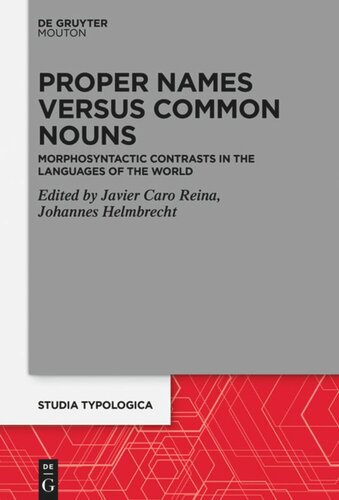

Most ebook files are in PDF format, so you can easily read them using various software such as Foxit Reader or directly on the Google Chrome browser.
Some ebook files are released by publishers in other formats such as .awz, .mobi, .epub, .fb2, etc. You may need to install specific software to read these formats on mobile/PC, such as Calibre.
Please read the tutorial at this link: https://ebookbell.com/faq
We offer FREE conversion to the popular formats you request; however, this may take some time. Therefore, right after payment, please email us, and we will try to provide the service as quickly as possible.
For some exceptional file formats or broken links (if any), please refrain from opening any disputes. Instead, email us first, and we will try to assist within a maximum of 6 hours.
EbookBell Team

4.4
22 reviewsRecent research has shown that proper names morphosyntactically differ from common nouns in many ways. However, little is known about the morphological and syntactic/distributional differences between proper names and common nouns in less known (Non)-Indo-European languages. This volume brings together contributions which explore morphosyntactic phenomena such as case marking, gender assignment rules, definiteness marking, and possessive constructions from a synchronic, diachronic, and typological perspective. The languages surveyed include Austronesian languages, Basque, English, German, Hebrew, and Romance languages. The volume contributes to a better understanding not only of the contrasts between proper names and common nouns, but also of formal contrasts between different proper name classes such as personal names, place names, and others.